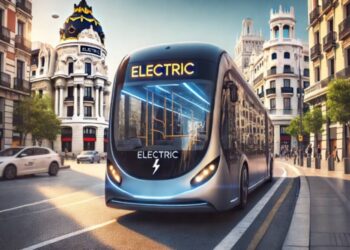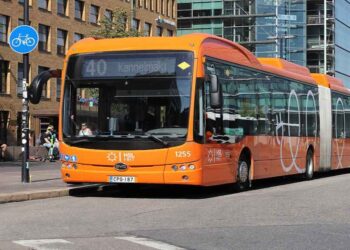Vehicle that can complete at least part of their journey with zero emissions, such as hybrid or plug-in cars, will still be allowed to be sold until 2035 as part of the new ambitious policy.
The UK will become the first nation within the G7 to ban the sale of petrol and diesel vehicles, as the government laid out plans this week to phase out the sale of new cars and vans run on traditional fuels by 2030. Step One will see the phase-out date for the sale of new petrol and diesel cars and vans brought forward to 2030, while Step Two will see all new cars and vans be fully zero emission at the tailpipe from 2035.
According to the Department for Transport (DfT), new cars and vans can be sold between 2030 and 2035 if they have the capability to drive a significant distance with zero emissions (for example, plug-in hybrids or full hybrids), and this will be defined through consultation.
The DfT says the move is underpinned by over £1.8 billion to support greater uptake of zero emission vehicles for greener car journeys. New measures announced today include more chargepoints, alongside innovation for new clean technologies. The UK government are hoping that the investment will improve air quality in towns and cities and support economic growth right across the UK.
Part of today’s announcement includes £1.3 billion to accelerate the roll-out of chargepoints for electric vehicles in homes, streets across the UK and on motorways across England, so people can more easily and conveniently charge their cars.
To meet future demand, the government says it is providing grants for homeowners, businesses and local authorities to install chargepoints, and is also supporting the deployment of rapid chargepoints. It claims that a driver is never more than 25 miles away from a rapid chargepoint anywhere along England’s motorways and major A roads.
Accessibility has always been an issue when it comes to the purchase of zero-emissions vehicles, but the government says it has also pledged £582 million in grants for those buying zero or ultra-low emission vehicles to make them cheaper to buy and incentivise more people to make the transition.
Alongside the further funding, after laying legislation this week, green number plates are set to be introduced from December 2020 to increase awareness of cleaner vehicles on the roads and help local authorities bring in local incentives. For example, drivers could benefit from local initiatives such as cheaper parking and cost-free entry into zero-emission zones.
Transport Secretary Grant Shapps believed the new deadline will make the UK a world-leader when it comes to clean vehicles: “The UK is going further and faster than any other major economy to decarbonise transport, harnessing the power of clean, green technology to end the UK’s contribution to climate change by 2050.
“Bringing forward the phase-out date could create 40,000 extra jobs by 2030, particularly in our manufacturing heartlands of the North East and across the Midlands and will see emissions reductions equivalent to taking more than 4 million cars off the road.
“We are also leading the charge when it comes to the transition to zero emission vehicles and today’s timely boost in funding builds on our world-leading £2.5 billion package to encourage drivers to make the switch.


































